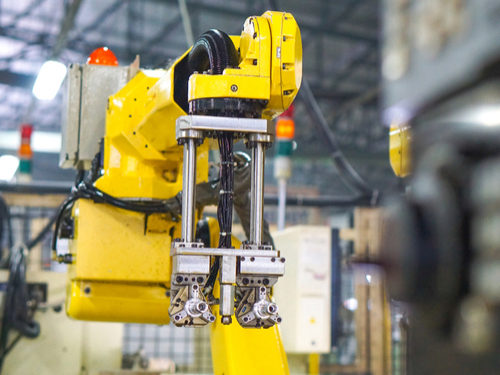
Think Tank
Four Ways AI Is Impacting Logistics and Supply Chain Management

Artificial intelligence is already powerful, and continuing to grow. Everything from self-driving cars to social media is being defined by how fast technology can train machines to behave like humans, or perhaps even exceed them in capabilities.
Enterprise applications based on advanced technologies such as AI and machine learning (ML), though still in the nascent stages of development, are beginning to drive innovation strategies of business.
In the supply-chain and logistics industry, these technologies are proving to be a game changer. McKinsey & Company expects businesses to gain between $1.3tr and $2tr a year in economic value by using AI in their supply chains. According to PricewaterhouseCoopers, AI could contribute almost $15.7tr to the global economy by 2030.
A key reason why AI adoption is taking off in the supply chain is the realization by companies of its potential to solve the complexities of running a global logistics network. Implemented correctly, AI helps companies to make smarter and more agile decisions, and anticipate problems.
Proactive systems enabled by AI are raising the quality of service, exceeding customer expectations for on-time and undamaged deliveries. They’re further improving efficiency through automated compliance processing. The result is lower costs and fewer problems across the logistics network.
What’s most exciting about AI, however, is its seemingly unlimited potential. When bundled with associated technologies such as ML, the Internet of Things (IoT), and predictive analytics, algorithms become more powerful. Access to additional data gives companies a better picture of their global logistics networks. This degree of transparency is critical because it acknowledges that the way we think about supply chain management and logistics is changing.
AI promises to have a dramatic impact in four key areas:
Predictive capabilities are helping demand forecasting. When inventory lags demand, companies suffer losses. AI is ramping up efficiencies in network planning and predictive demand, allowing merchandisers to become more proactive. By knowing what to expect, they can adjust the number of vehicles and direct them to locations where maximum demand is expected. This leads to lower operational costs.
Chatbots are redefining customer support. According to Accenture, 80 percent of all customer engagements can be handled by bots. AI can personalize the relationship between customers and logistics providers.
A recent example of personalized customer experience is DHL’s partnership with Amazon. By activating DHL Parcel “skill” via the Alexa app, DHL customers can ask Alexa to connect with Amazon Echo or Echo Dot smart speakers and confirm their parcels’ status. In the event of any issues arising during the interaction, Echo users can directly contact DHL for assistance by its customer-support team.
Smart warehouses are more efficient. A smart warehouse is a fully automated facility wherein most work is done through automation or software. In the process, tedious tasks are simplified, and operations become more cost-effective.
Alibaba and Amazon have already transformed their warehouses through the use of automation. Amazon recently rolled out machines that automate the job of boxing customer orders. In Amazon warehouses, robots work alongside humans to increase productivity and efficiency.
Genetic algorithms are improving delivery times and reducing costs. In the logistics business, every mile and minute matters. Companies can use a route planner based on genetic algorithms to map out optimal routes for deliveries.
UPS uses Orion, a GPS tool that helps drivers make timely and cost-effective deliveries. Routes can be planned and optimized depending on traffic conditions and other factors. Orion has helped UPS save nearly $50m annually.
In the near future, AI will set a new standard of efficiency across supply-chain and logistics processes. The game is changing quickly, creating a “new normal” in how global logistics companies manage data, run operations and serve customers, in a manner that’s automated, intelligent, and more efficient.
Regardless of how one views these changes, AI and associated technologies are about to take over global supply-chain management.
Dan Khasis is the founder of Route4Me, a software platform for route optimization.






